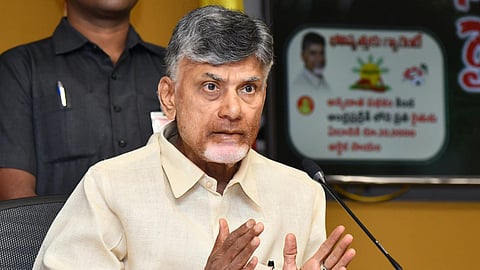

VIJAYAWADA: The coalition government is chalking out final plans to implement free bus travel for women, a key Super Six promise. Chief Minister Nara Chandrababu Naidu held a review meeting with APSRTC officials at his Undavalli camp office on Saturday to discuss the rollout, set to begin on August 15.
To accommodate the expected surge in passengers, the Chief Minister directed officials to increase the number of buses by purchasing new ones or leasing them as needed. He emphasised that all new buses introduced by the Andhra Pradesh State Road Transport Corporation (APSRTC) should be electric vehicle (EV) air-conditioned buses.
He further instructed officials to explore converting existing buses to EVs and to equip every bus with GPS for better tracking and management.
Despite the State’s financial constraints, Chief Minister Naidu stressed the importance of fulfilling election promises while ensuring prudent use of public funds. He urged APSRTC to boost revenue streams and reduce operational costs. Suggestions included improving efficiency, maintaining clean bus station facilities, and ensuring passenger satisfaction through better services.
He emphasised that Andhra Pradesh’s scheme should be the most effective and passenger-friendly. “Our implementation must set a benchmark for satisfaction and efficiency,” he told officials.
Furthermore, Naidu has called for a detailed study of various operational models to minimise costs, including battery-swapping systems, diesel, EV, and CNG buses.
“A thorough analysis is needed to determine the most cost-effective approach,” Naidu stated. Officials estimate that an additional 2,045 buses will be required to implement the scheme, at an estimated cost of Rs 996 crore.
With Andhra Pradesh’s population at 52.5 million, including 26.2 million women, the scheme is expected to significantly increase bus travel. Currently, women make 430.6 million trips annually on Palle Velugu, Ultra Palle Velugu, and city buses. Post-implementation, this number is projected to reach 755.1 million.
APSRTC’s total fleet consists of 57% Palle Velugu, Ultra Palle Velugu, and city buses, which travelled 677.6 million kilometres last year. Express and Metro Express buses account for another 17% of the fleet.
Notably, despite the lack of major cities, the Central government has allocated 750 electric vehicle (EV) buses to Andhra Pradesh’s 11 municipal corporations under the Urban Transport scheme, following a request from the Chief Minister.
The State is gearing up to ensure the scheme’s success, balancing financial prudence with enhanced public transport services for women.